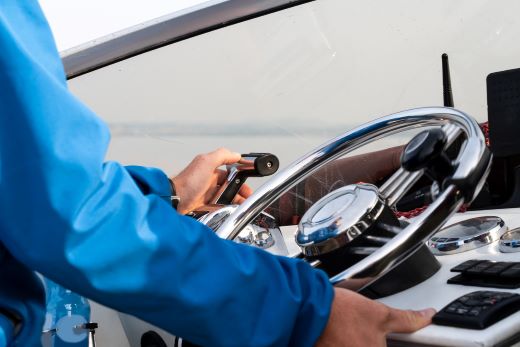There's nothing quite like a day out on the water, but every boater knows a great day on the water starts before launch. If you're a boat passenger or a new boat owner, knowing what not to bring on a boat can make all the difference between a great day at sea – and a stressful one.
The wrong items can lead to unnecessary messes, safety concerns, or just plain frustration. To help you have the best possible time, let's talk about what not to bring on a boat.
10 Items to Leave at Home Ahead of Your Next Boating Adventure
1. Messy or Hard-to-Clean Foods
While onboard snacks and meals are essential for a great day on the water, messy foods like sticky items, greasy items, or anything prone to spills should stay at home. Crumbs and grease can attract pests or create slippery surfaces, while spilled drinks can stain upholstery and make clean-up a hassle.
Instead, pack easy-to-eat, non-messy, simple snacks like sandwiches, energy bars, fruit, or pre-packaged treats.
2. Glass
Glass and boats don't mix. One slip, and you've got shards everywhere, creating a safety hazard for passengers, swimmers, marine life, boat finishes – and it's a nightmare to clean. Cans, plastic bottles, or reusable metal containers are far better alternatives.
Read Next: Boat Recycling Guide
3. Slippery Shoes
Footwear with smooth soles, like cheap flip-flops or even nice leather-soled shoes, can lead to slips and falls, especially on wet decks.
Non-slip boat shoes or sandals with adequate traction are a much better choice. These shoes help keep you steady and safe as you move around the vessel. Additionally, reach for shoes with lighter sole material, as dark-soled shoes can cause scuffs on board.
Read Next: The Best Boat Shoes
4. Sharp Objects Without Proper Storage
Bringing knives, scissors, or other sharp objects on a boat can quickly become a hazard to your boat - and guests. Loose sharp items can puncture inflatable gear, damage upholstery, or cause injury during sudden movements.
If these items are essential, store them in a safe, designated space to prevent accidents.
5. Expensive Jewelry or Accessories
High-value items like watches, rings, or designer sunglasses should stay at home. If not secured, they can slip off and fall into the water, never to be seen again.
Saltwater and sun exposure can also tarnish or damage these items. Choose inexpensive, durable accessories if you need to bring any.
6. Non-Waterproof Electronics
Electronics like laptops, tablets, and non-waterproof cameras are highly susceptible to damage from splashes, humidity, and accidental drops. Boats are wet environments, and these items are best left at home. For essentials like phones or GPS devices, invest in waterproof cases or dry bags for protection.
7. Cigarettes or Open Flames
Open flames are dangerous on a boat for many reasons, one being that fuel vapors can accumulate in confined spaces, creating a fire hazard. Smoking or using lighters can also pose a risk of upholstery burns or accidental fires.
For a safer experience, leave cigarettes and flame-based devices behind.
8. Excessive or Oversized Items
Space on a boat is often limited, so oversized coolers, backpacks, or duffle bags can create unnecessary clutter. Bulky items reduce space quickly and increase the chance of tripping. Use compact, soft-sided coolers and streamlined bags to pack your essentials without crowding the deck.
9. Items That Aren't Waterproof
Delicate items like paper maps, books, or personal items that aren't waterproof should be left at home or stored in waterproof bags. Boats are prone to splashes, humidity, and unexpected weather, which can ruin your belongings. Invest in dry bags or waterproof pouches to keep your essentials safe.
10. Plastic Grocery Bags
Plastic bags might seem convenient for carrying supplies, but they can quickly become unintended litter once onboard. A gust of wind or an unexpected wave can easily send lightweight bags overboard, polluting waterways and harming marine life.
Instead, opt for sturdier, reusable totes that won't blow away. We recommend investing in a reliable LL Bean Boat and Tote bag or similar durable options to securely transport your items. You're keeping your belongings safe and helping protect the environment by choosing reusable alternatives.
Conclusion: Make Sure You're Packing the Right Items Ahead of Your Next Boat Trip
Knowing what not to bring on a boat is just as important as preparing the right gear. By leaving these items ashore, you can avoid messes, improve safety, and create a better experience for everyone onboard.
If you're a guest on a friend's boat, ask them beforehand if they have any specific things not to bring on their boat. Every vessel has its own 'house rules.' Some captains will ask you to leave tanning oils and pets at home, while others may ask that you keep spray sunscreen and shoes on land.
Focus on packing essentials that enhance your trip, like snacks, non-slip shoes, and waterproof bags, and let these tips guide you toward smooth sailing.


